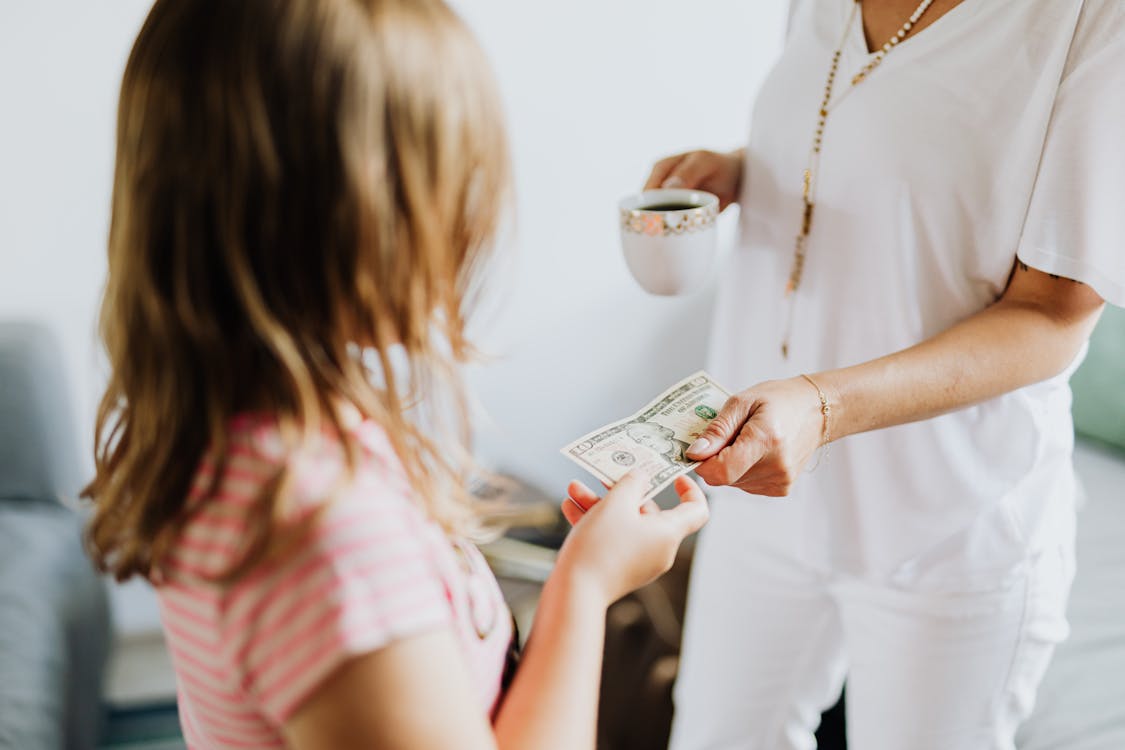What age should a child be exposed to money?
What is financial literacy?
To the best of my knowledge, in very simple terms, this just means knowing the proper use of money. It involves all protocols and insights that comes with money. As a thing of value, money has laws and operates based on those laws. Understanding the laws that govern money is very necessary in today’s world. There is this saying that the rich keep getting richer and the poor getting poorer. Perhaps the rich know very well how to handle money than the minority.
In Nigeria today, the subject of money can be very sensitive depending on whom you are with and where you are. In a classical Nigerian home, money may be a forbidden word. As I said, depends where you are. I have been in homes where money is never a problem. In fact, they groom their children with a certain mindset. I stayed in such a home once. It was very different from what I was used to. We could have what we wanted, when we wanted it. In addition, I have stayed in a home where money is only talked about when it is necessary. Asking for things was like a gamble. We would bet if it‘d be a yes or not. Sometimes, we do not even need to bet. We just know it is an outright no.
My mom was very liberal when it came to money and me. Not like she always got me whatever I wanted, but she always made sure I had what I needed and, she would reward me once a while for doing stuff. When I grew, I realized that it was not that way in all households. In fact, what I called pocket money, my mates saw as extravagant. Today, I wonder if my upbringing in terms of money affected how I view myself.
Are parents willing to expose their children to the world of money?

Photo by Karolina Kaboompics from Pexels
I remember the first girlfriend I made at the age of eight when mom and I newly moved to one of our tiny rooms. She did not like me at first because ‘I was privileged’. In her words, I was rich but that was not the case. It was just my mom and I. Mom was a teacher and struggled to make ends while making sure I went to school. On the side, she did several trades from bead making to beverages, clothes, and snacks. She would always make sure my head was in the game. She would give me the book to log in and record sales. Overall, she held me accountable when it came to sales cash.
At a very young age, I knew when we had to cut down on spending (which meant no ‘Christmas clothes or chicken’), when I could afford my favorite drink (Capri-Sun) and when the market fluctuated. Inflation was the first knowledge I had of Nigerian economy because I always went with mom to the market and she was deliberate in tasking me with handling the money. A big responsibility. I did not know what she was doing then, but now, I clearly understand.
This is why I think differently from my peers. While my mates are taken with the latest trend and iPhones, I am wondering if throwing my money into a certain project would be beneficial, and this sparks the question if holding our children back from money is really the right thing to do. I do not know of many parents who would trust their children with book keeping from an age that young or even hand them the key to the moneybag. Maybe this lack of trust is one factor that has contributed in our tunnel vision knowledge about money.
Are there dangers following the exposure of children to money?
Is there not always a downside to everything? Depending on the approach applied to educate a child about money, there will be consequences. 
Photo by cottonbro studio from Pexels
Let me use the example of a family I stayed with when I was seven. Father is Nigerian (or was he Ghanaian?) and mother is European. They had this method of what you want, you earn. For example, let us say I wanted a toy car. I would express my desire to ‘Daddy’ and he would nod and ask me, ‘how much is it?’
Then, I did not think much of why he would ask me such a question. He is the grown up, he should know. Now, when I look back, I realized what he was doing was bringing to my knowledge what the value of what I want is. When I get to know how much that thing I want is, as a child, no matter the price tag, it always looked like a huge amount of money. My subconscious would be alert and I would have this strong desire to prove that I could very much handle that amount of money in my own little way. The allowance I got, I would cut down on buying my favorite snacks and candies. When Daddy has not responded in two days, I would go to him and say, ‘see, I saved 100 naira. Hold it, I’ll bring another 100 in two days.’
I do not think I fully grasped how much I would have to save to get what I wanted. What I remember is that Daddy would call me after a week and ask me how much I have saved so far. When it first happened, I was stunned. I stared at him and replied, ‘but the money is with you.’ He laughed and asked, ‘So? What if I don’t keep count?’
That made me have a small diary (which I asked him for and he gave) where I kept record of every penny I gave him. I do not know if I ever even saved enough for that toy but after a period, Daddy would come home with it and say, ‘well done’. This was the same for all his kids. I guess this made me see money differently even before Mom decided to start businesses and rope me hand and feet into them.
At what age should a child be exposed to money?

I have heard parents saying that giving their child more than N100 breeds greed. I highly disagree. In my opinion, with the country’s current economy and constant inflation, giving a child N100 ($0.065) for a day or week is teaching them to believe that money is difficult to earn. When a child grows up believing that ‘they can’t earn good money’, it does a lot to their self-esteem.
I believe that children from as young as ten should be given the opportunity to learn about money. While reading NURTURE, NOT EXPOSURE the author mentioned that you cannot teach what you do not know. In this case, if you would teach your child about money, you have to have it and be stable with it. Children, as he pointed, learn by watching adults. What they see you do, is what they will do.
Personally, I would begin exposing my children to money from the age they are mentally sound to understand. I believe that holding it from them or fearing that they would become materialistic only hinders their growth. They should understand the concept (the mistakes and lessons) of money from a young age. I am yet to find them but once I do, I would apply methods that would foster the mental growth of my children financially.
What principles do we follow for healthy exposure of our kids to money?
I do not know yet. I am yet to find out what works for me in this aspect. Currently, I am still learning the curves and bends relating to money. I am still winding my way through decisions that would load or hurt my purse. I am still making mistakes but I am learning from them as I do.
In conclusion, I would go with exposing my child as early as possible to how money works. I need them to be prepared especially given the nature of the economy we find ourselves today. If they would become financially free, like I dream to be, they need to start early. 


![[LIVE] Engage2Earn: McEwen boost for Rob Mitchell](https://cdn.bulbapp.io/frontend/images/c798d46f-d3b8-4a66-bf48-7e1ef50b4338/1)










![[ℕ𝕖𝕧𝕖𝕣] 𝕊𝕖𝕝𝕝 𝕐𝕠𝕦𝕣 𝔹𝕚𝕥𝕔𝕠𝕚𝕟 - And Now What.... Pray To The God Of Hopium?](https://cdn.bulbapp.io/frontend/images/79e7827b-c644-4853-b048-a9601a8a8da7/1)
































